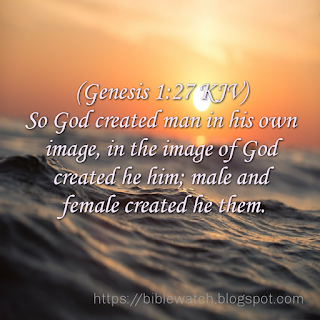JACOB DID NOT WAIT FOR 7 OR 14 YEARS BEFORE LEAH/ RACHEL WERE GIVEN TO HIM. HE TOOK BOTH WIVES IMMEDIATELY.
Many Christians thought that Jacob worked seven years for Laban, realized that Laban deceived him to marry Leah, and then worked seven more years before finally getting married to Rachel. However the bible shows that he took both Leah and Rachel immediately before he began serving Laban.
For clarity, I advise you to read this Jacob's story in other translations of the Bible aside King James Version (KJV). Meanwhile lets look at look at some of the facts from the Bible:
(Genesis 29:21 KJV) And Jacob said unto Laban, Give me my wife, for my days are fulfilled, that I may go in unto her.
Please note that the 7 years of service required of Jacob were the total dowry and not the customary waiting period before a wife was given to the groom. In other words, Jacob took Leah after the customary waiting period which was a couple of days just like we read in vs 21.
Notice that he said, "Give me my wife, for my days are fulfilled" implying a certain number of days from the time the marriage contract was made until he could actually have the bride. He did not say, "Give me my wife, for my years are fulfilled".
(Genesis 29:27 KJV) Fulfil her week, and we will give thee this also for the service which thou shalt serve with me yet seven other years.
(Genesis 29:28 KJV) And Jacob did so, and fulfilled her week: and he gave him Rachel his daughter to wife also.
(Genesis 29:29 KJV) And Laban gave to Rachel his daughter Bilhah his handmaid to be her maid.
(Genesis 29:30 KJV) And he went in also unto Rachel, and he loved also Rachel more than Leah, and served with him yet seven other years.
From the above verses we learn that Jacob received both wives within a week of each other. Since it can be proved in vs 21 that Leah became his wife at the beginning of the total 14-year dowry period after the customary waiting period, then we know that Rachel became his wife also at that time.
More so, in consideration of the period required by Jacob to give birth to so many children, it will be unreasonable to believe that Leah's 7 children and all the children of the maids and Rachel were born within 7 years (i.e at the end of the first 7- year period) as some people thought. The last son of Jacob before returning to Canaan was Joseph, born the 14th year of his father's 20 years stay in Haran. At his birth Jacob desired to return to Canaan, but was persuaded to remain 6 more years (Genesis 30:24-28; 31:41)








This is very informative.
ReplyDeleteso true. it's so on point
DeleteVerse 25. Said did not I serve you for Rachel. I understand that Jocab serve seven for Leah, but Rachel was given him before he serve another seven year.
ReplyDeleteIf we are to have harmony regarding all the facts in the Scripture, both wives would have to have been given to him at the beginning of the total 14 years dowry period as I earlier stated. In Vs 21 he said to Laban, Give me my wife, for my days (not years) are fulfilled. Implying a certain number of days from the time the contract was made until he could actually have his wife. It could not have been 7 years of waiting to fulfill the marriage contract. These years of service was the total dowry and not the customary waiting period. More so, to believe that Jacob received Leah at the end of the first 7-year period would not give enough time for so many children to be born. It would have been impossible to account for Leah's 7 children and a 2-year unfruitful period in 7 years.
DeleteMore so, Judah (the fourth son of Leah) could not have been born in the second 7-years, for the events of Genesis chapter 38 related to his life and was supposed to have taken place before his family went down into Egypt. This requires more time.
DeleteVs 25 indeed seems confusing. However, read Gen 30:26. It also seems to suggest that even Leah was not given to him until after the 14 years service. But that's not the case as Leah had already given birth to children.
DeleteI disagree. Gen. 29:20 says, "And Jacob served seven years for Rachel; and they seemed but a few days, for the love he had to her."
ReplyDeleteVs. 21: "And Jacob said unto Laban, give me my wife, for my days are fulfilled, that I may go in unto her."
Laban then gathers all the men of the place together, makes a feast, and gives Leah to Jacob (vs. 22,23).
Now, the next morning Jacob discovers it's Leah and not his beloved Rachael, then confronts Laban about it. Laban ends up telling Jacob to "Fulfill her (Leah's) week, and we will give thee this also for the service thou shalt (future tense) serve with me seven other (agreeing with vs. 20 that he had already served seven years) years."
Vs. 28: "And Jacob did so, and fulfilled her week: and he gave him Rachel his daughter to wife also."
He served seven years and got Leah, then spent a week with Leah, then Laban "gave him Rachel
his daughter to wife also." (vs 28). Then, he worked off seven more years for Rachel.
He worked a total of 14 years for Rachel, but got her after he worked 7 years and 7 days. The last 7 he worked off after the wedding!
We must be very careful to read scripture in its context so we don't try to make it say something it doesn't. Sometimes it's a matter of understanding plain grammar--
This seems to be the best handling of the text. I wish someone would attempt to explain why in the world he offered seven years of service in the first place, as any commentators I have access to fail to dig into that issue.
DeleteIt’s likely that Leah simply wasn’t at marriageable age yet, but probably not the whole 7 years shy. Jacob’s thought process may have been that Laban would allow the marriage a few years into the deal after seeing how good of a worker Jacob was, and that he would be faithful in fulfilling the remainder of his agreement even if Laban gave Rachel a couple years early. Jacob may also have been a little impetuous, such as when someone makes an impulse purchase without considering their budget first, or committing to an event before consulting with their spouse. There are many reasonable explanations for this story. I often wish the Bible gave us more definitive answers to some of these very good questions.
Delete